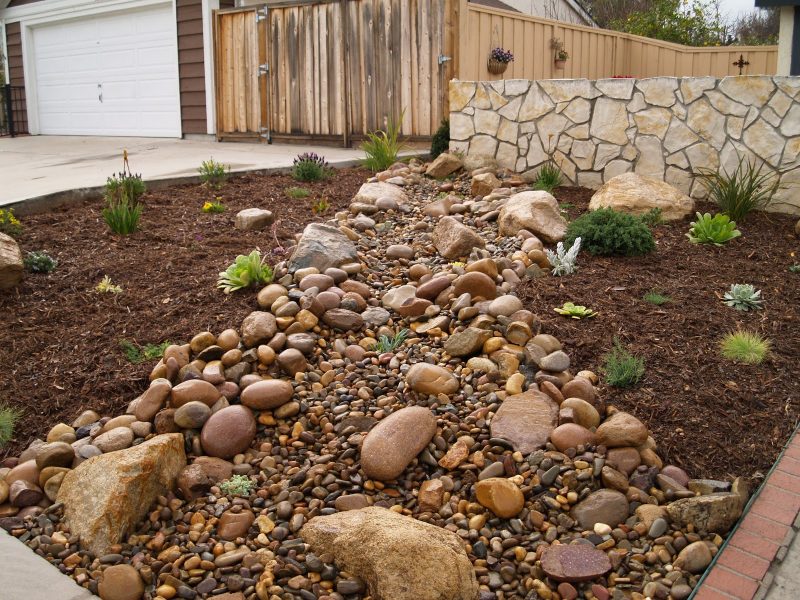Mulch: Bark Vs Rock
 Various types of materials can be used as mulch. You can even find most of these things inside and outside your home – newspaper, cardboard, and rubber, plus leaves, grass clippings, and wood chips.
Various types of materials can be used as mulch. You can even find most of these things inside and outside your home – newspaper, cardboard, and rubber, plus leaves, grass clippings, and wood chips.
Many property owners, however, debate whether to use bark or rock as mulch in their gardens or landscapes. This is because these two materials work well as mulches that effectively prevent moisture loss and weed growth. They also aid in controlling soil temperature and helping improve the overall aesthetics of your garden or outdoor space.
Each of these two types of mulch has its own advantages and disadvantages. If you’re still choosing between bark and rock, here’s a comparative look at these two varieties that you can consider when making your decision.
Moisture retention
One of the main reasons why it is important to spread mulch on your garden is so that it can help ensure that the soil retains enough moisture to nurture plants. If this is your priority, bark or wood is the ideal option since they are effective in helping soil retain water. This is because as the mulch decomposes, it improves drainage and water retention.
Rock mulch, on the other hand, is ideal for yards and gardens with little rain and for plants that do not require copious amounts of water. This type of mulch will also work best if there is a drip irrigation system installed so that the soil still regularly gets small amounts of water.
Weed control and prevention
Both types of mulch can help deter the growth and spread of weeds. Bark mulches can do this naturally. However, rock or stone mulches will require the installation of a weed barrier before they should be spread on the ground. To completely reduce and control the weed population, regular mulching and applying the right weeding techniques are still crucial.
Total outlay and maintenance requirements
Lastly, you should also consider the cost and maintenance requirements for these two mulch varieties.
Wood mulch is cheaper in terms of initial outlay. The product is cheaper but it needs to be replaced or reapplied every one or two years. However, as new mulches are spread, new and more organic materials and minerals are added to the soil, making it healthier.
Rock mulch, on the other hand, presents a higher initial cost than wood mulches since the product itself is expensive and permanent. Also, landscape fabric or weed barriers have to be installed below the rocks to block weeds. You also need to invest in some edging material to keep gravel out of your lawn. The upside to this is that you don’t have to change the rocks every year or so.
In Australia, the most popular types of wood mulches are eucalyptus, hoop, and pine barks. For rock mulches, river and scoria are the most widely used.
When making your decision, don’t forget to consider other important factors as well such as the weather condition in your area, the plants you have in your garden, and the overall look you want to have for your outdoor space.
For more garden and landscaping tips, tune in for more Jim’s Mowing NZ blogs.



